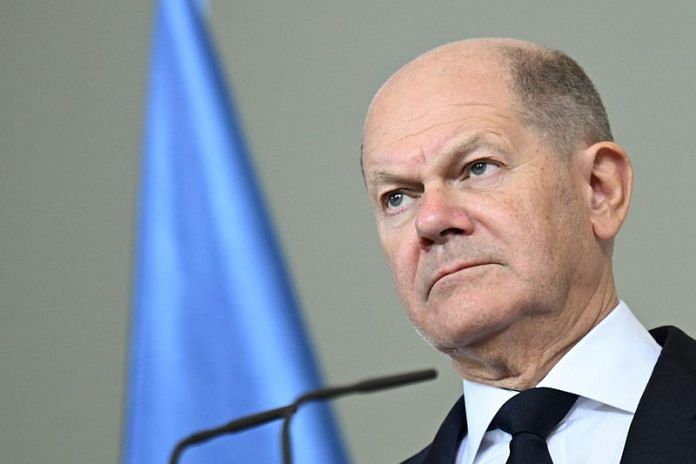By Sarah Marsh and Andreas Rinke
BERLIN (Reuters) -The three parties that have governed Germany in an increasingly fractious coalition for the past three years met on Wednesday evening for a last-ditch bid to agree a new economic consensus that could avert a collapse of the government.
Relations between Chancellor Olaf Scholz’s Social Democrats (SPD), the Greens and the neoliberal Free Democrats (FDP) have plumbed new depths over the past week as they clashed over differing visions on how to reboot a flagging economy.
Finance Minister Christian Lindner of the FDP and Economy Minister Robert Habeck, a Green, arrived at Scholz’s riverside office for crisis talks on plugging a multi-billion-dollar hole in the budget and forge an economic policy compromise.
The talks could last deep into the night. If they fail, the coalition could collapse, plunging Europe’s largest economy into uncertainty just as Donald Trump prepares to return to the White House following his victory in Tuesday’s election.
“Everything is on the table,” SPD General Secretary Matthias Miersch told Reuters. “Everyone knows what’s at stake and that’s why I’m really expecting today to be the day of the decision.”
The return of Trump, whose isolationist and “America First” policies are widely seen as a threat to Europe’s economy and security, only heightens the need for a decisive German government, officials said.
“The only consequence of this U.S. election result must be that Germany cannot be absent from Europe,” Habeck said.
Germany is now facing its second consecutive year of economic contraction and a crisis in its business model after the end of cheap Russian gas and amid increasing competition from China.
TARGET OF TRUMP’S IRE
Germany was a frequent target of Trump’s ire during his 2017-21 term as president due to its trade surplus with the United States and low defence spending.
Officials said they had made some progress in bridging their differences, but no document had been agreed. The FDP wants to lighten the tax and regulation burden for German businesses and to soften climate targets.
Their more left-wing partners want the state to help companies restructure, while the climate protection agenda is especially important to the Greens.
Germany’s main opposition conservatives, who opinion polls suggest would comfortably win any election held now, are demanding fresh elections, saying this is the only way of achieving the stability needed to engage with Trump.
A coalition collapse could leave Scholz heading a minority government, relying on ad hoc parliamentary majorities to govern, or else trigger an early election – which surveys suggest would be disastrous for all three coalition parties.
The SPD and Greens are polling well below their scores in the 2021 election, while the FDP could be ejected from parliament altogether.
(Reporting by Sarah Marsh, Andreas Rinke, Christian Kraemer and Riham Alkousaa, Thomas EscrittEditing by Mark Heinrich, Matthias Williams and Gareth Jones)
Disclaimer: This report is auto generated from the Reuters news service. ThePrint holds no responsibilty for its content.




